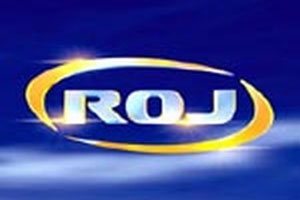 COPENAGHEN, — The trial of Roj TV will resume on 15 August in Denmark. The satellite channel is accused of propaganda for the Kurdistan Workers Party (PKK).
COPENAGHEN, — The trial of Roj TV will resume on 15 August in Denmark. The satellite channel is accused of propaganda for the Kurdistan Workers Party (PKK).
While Roj-TV does not have any studios in Denmark it was granted broadcasting license by the Danish authorities. The current trial should be established whether the Kurdish television will stay open or not. The Turkish government is putting a lot of pressure on the Danish authorities as it wants the channel to be closed.
Roj TV was born as Med TV on 30 March 1995. On 14 April of that year it broadcast the founding congress of the Kurdish Parliament in exile. Over the years in the four parts of the divided Kurdistan (Iran, Turkey, Iraq and Syria) as well as all over the world the satellite dishes grew like mushrooms to receive the precious signal which was coming from Europe to give the Kurds everywhere images and voices of their country.
Med TV was broadcasting from Belgium and soon Turkish pressures convinced the local authorities to act against the television. In September 1996 with a massive police operation Med TV was raided, its staff detained, and its archives seized.
In February 1997 the MGK (Turkish National Security Council) asks once again for the closure of Med TV. But it was after the arrest of the Kurdish national leader, Abdullah Ocalan that things turned for the worst for the television.
On 22 March 1999, a month after the capture (as a result of an international plot) of Ocalan in Kenya, the English ITC revokes the license and Med TV could not broadcast anymore.
But the Kurds didn’t accept this abuse and opened a new television channel, Medya TV, this time in France. It did not go too well, but a new license was obtained by CTV based in the Vatican.
And after a short period it was Denmark that gave the new licence. The Kurdish channel began broadcasting once again, first with the name of Mesopotamia TV and then with the name Roj TV.
Roj TV has a very various programming, from news, to in depth investigation programs, from live music programs to live debates. It broadcasts in Kurdish (Sorani, Kurmanci and Zazaki) as well as in Turkish.
The last big operation was on 4 March this year. Dozens of arrests were carried out once again by the Belgian authorities acting on request of Turkey. And indeed Turkish policemen took part in the raid at Roj TV studios which were destroyed.
The television as a result of this clearly politically motivated operation suffered a €1.2 million loss in material damage.
Roj TV is always under attack. From the Turkish state to begin with, but also from the United States, which have often act on behalf of the Turkish requests (and pressures) to an often embarrassed and embarrassing silent Europe.
The requests are of course for the “immediate closure” of Roj TV. In 2005 it was the Turkish premier Recep Tayyip Erdogan who, at a press conference in Denmark with his Danish counterpart, suddenly left the room when he saw among the crowd of journalists two Roj TV reporters.
“There is room only for one of us: if they don’t leave I will”, said an angry Erdogan. And it was him who had to leave the room, after the polite but firm reply by the Danish authorities, “For us freedom of the press is a value to respect and to uphold. We will not censor any journalist”. In other words, sorry Prime Minister, but it’s you who should go. And Erdogan did leave, but he has been holding a grudge against the Danish government since.